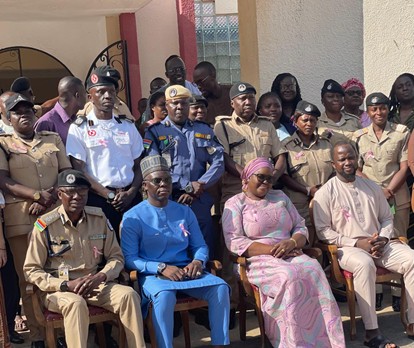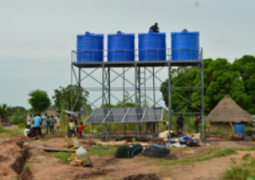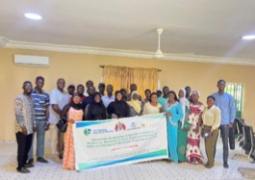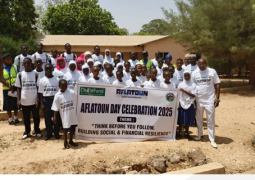
The forum also seeks to deepen understanding among stakeholders of the bill’s key provisions, financial implications, and implementation roadmap.
The proposed legislation represents a major milestone in the country’s ongoing Security Sector Reform (SSR) process, emphasising accountability, inclusivity, and respect for human rights.
More than 50 participants, including representatives from government institutions, oversight bodies, civil society organisations, and development partners, attended the forum demonstrating strong commitment to building a humane and modern correctional system.
The engagement is part of a 36-month joint project dubbed- “Sustaining The Gambia’s Peaceful Transition by Supporting the Implementation of the Security Sector Reform Strategy,” being funded by the United Nations Peacebuilding Fund (UN PBF) and jointly implemented by UNDP, OHCHR, and UNODC.
The project supports the government’s SSR Strategy (2023–2027), which envisions a professional, gender-responsive, and rights-based security sector rooted in the rule of law.
Addressing the opening ceremony, Ansumana Manneh, Director General of the Gambia Prison Service, described the bill as a blueprint for transformation.
“This bill is not just a legal document, but a vision for transformation,” he stated. “It seeks to create a progressive framework that promotes humane treatment, professionalism, and rehabilitation enabling offenders to become productive members of society.”
He encouraged participants to contribute actively to finalising a law that reflects The Gambia’s shared values of justice, dignity, and reform.
Coumba Mathurin Diop, head of UNODC’s Programme Office in The Gambia, reaffirmed the UN’s unwavering support for the country’s reform process.
“Since the beginning of the Transitional Justice and Security Sector Reform process, UNODC has partnered with the government to strengthen legislative frameworks, enhance capacity, and align justice institutions with international norms,” she said.
Reforming the Prison Law, he added, is a crucial step toward transforming The Gambia’s correctional system into a rehabilitation-oriented institution that upholds human rights, democratic governance, and prevents the recurrence of past abuses.
“A revised prison law is not only a legal necessity,” she added, “but a moral obligation to ensure humane treatment and reintegration of offenders.”
Speaking on behalf of the Minister for Interior, Lamin Gassama, Deputy Permanent Secretary, reiterated the government’s full commitment to prison reform.
“We are approaching a new prison regime not because the status quo is the worst, but because development necessitates change,” he stated.
Gassama also spoke of the Ministry’s plans to improve prison infrastructure, expand education and vocational programs for inmates, and enhance staff welfare.
“Inmates are not to be ostracized; they are part of our society. Our duty is to ensure they are given a second chance through programs that make them better citizens.” he added.
Read Other Articles In National News





